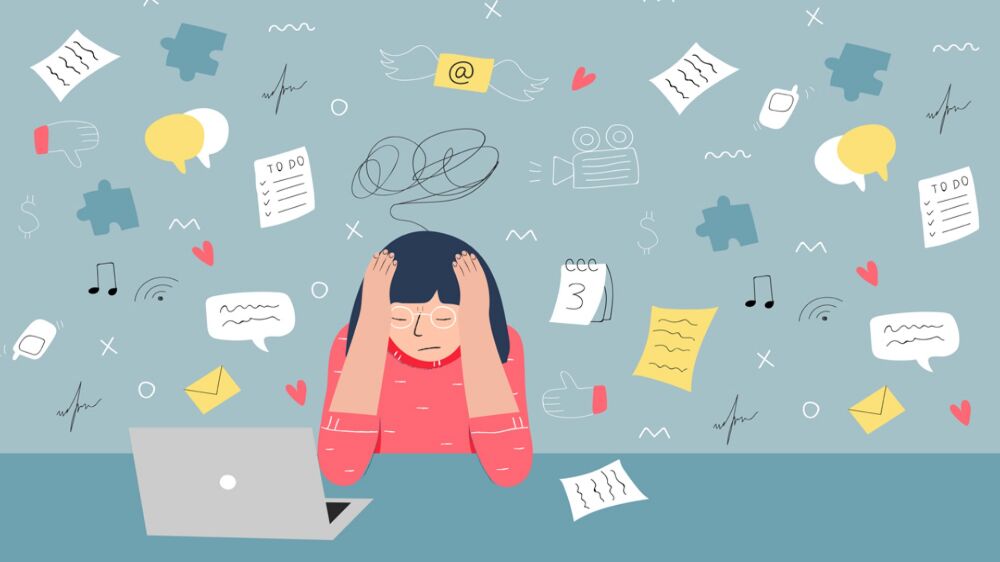In balanced proportions
While positive stress can be put to constructive use, dealing with negative stress requires a self-designed proactive approach

Each year April is celebrated as stress awareness month to increase public awareness of the causes, signs and coping strategies for stress. In these tough times, we are finding more and more individuals affected due to stress which is present in a myriad ways.
What is Stress?
Stress is a feeling of emotional or physical tension. It can come from any event or thought that makes you feel frustrated, angry or nervous since there may be things beyond your control. Stress is your body's reaction to a challenge or demand.
Is stress always bad? Can stress be cut out completely or should it be balanced?
In short bursts, stress can be positive, such as when it helps you avoid danger or meet a deadline. Stress is one of those entities in life that you need just in the right amount. If there is too much of it, you will inevitably feel a burnout. But having no stress or push in life can lead to procrastination and lack of productivity.
Why is stress on an all-time high?
COVID-19 has added unpredictability to our lives. Studies have shown that the pandemic has caused a surge in stress levels for people across the globe. According to some studies, as much as 85 per cent of UK adults experience stress regularly during the present times. Stress is a response to the demands placed on our bodies through work, life, crises and fears. If our stress levels get too high, we can experience physical and mental health problems that can have a serious impact on our daily lives. The key reasons for these feelings are sense of disconnection (distancing and staying at home), uncertainty (about the end of the pandemic) and worrying about loss of control (especially related to health).
Stress signs of mind and body:
Physical:
• Muscle tensions
• Aches and pains
• Low energy and fatigue
• Sudden weight loss or gain
• Prone to non-communicable diseases like diabetes, hypertension etc.
Mind & emotion:
• Depression
• Anxiety and panic attacks
• Worries
• Loss of bio-drives like sleep, appetite and sex
• Poor memory
• Poor concentration
Behaviour:
• Poor adaptive behaviours like smoking, drinking excessively, emotional eating etc.
• Procrastination
• Disinterest in life
• Being irritable, angry, impatient or overwhelmed easily
• Unable to relax or let go pessimistic attitude
• Change in behaviour from previous self
Who/ which age group gets affected by stress the most?
All age groups, people of different walks of life are feeling the stress in their own way in the present times.
Are you managing the stress or is the stress managing you?
Stress can be managed with the right healthy coping strategies. Being mindful of what are your stressors and how you would like to channelise your energy towards releasing stress is pivotal.
How can you manage stress on your own?
• Take account of your stress levels regularly by checking in with yourself.
• Work on the triggers that you know stir up a stress response.
• Be in charge of your mental and physical health by being proactive in finding solutions.
• Balance the three pillars of sleep, appetite and rest.
• Allow yourself room to make mistakes and grow.
• Relax and unwind.
• Know that these tough times are not under your control and affecting everyone. This too shall pass.
• Talk it out with a loved one or a professional (mental health expert) if needed.
Send your questions to [email protected]



